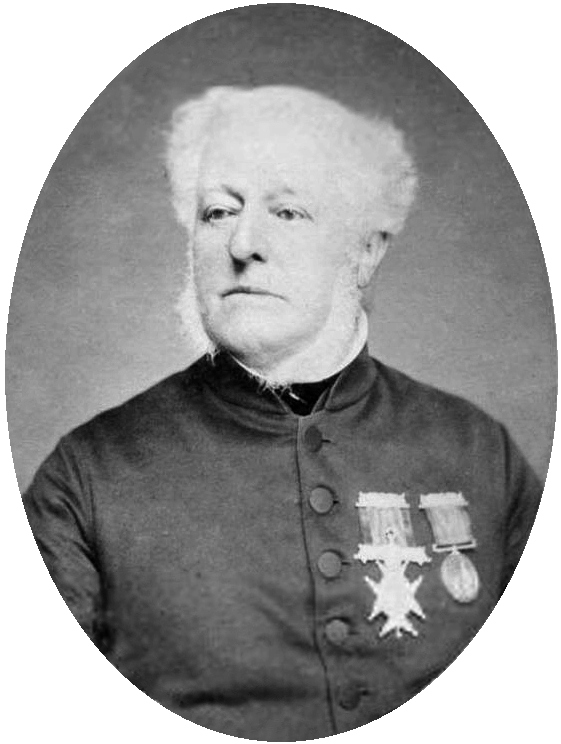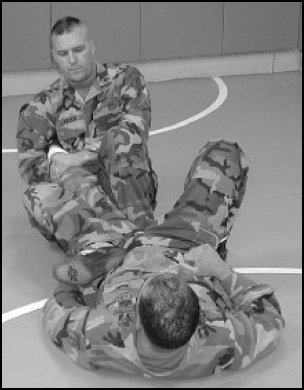|
Shin-kicking
Shin-kicking, also known as shin diggings or purring, is a combat sport that involves two contestants attempting to kick each other on the shin in order to force their opponent to the ground. It has been described as an English martial art, and originated in England in the early 17th century. History It was one of the most popular events at the Cotswold Olimpick Games from 1612 until the Games ended in the 1850s. When the Games were revived, in 1951, the sport was included as the World Shin-Kicking Championships and remains one of its most popular events, drawing crowds of thousands of spectators. Shin kicking also became a popular pastime among Cornish miners. Known as clog fighting or 'purring' in the mill towns of Lancashire, it was a combative means of settling disputes popular in the later 19th century until the 1930s. Clog fighting and its associated gambling by spectators was illegal. In the late 19th and early 20th centuries, the sport was also practised by British imm ... [...More Info...] [...Related Items...] OR: [Wikipedia] [Google] [Baidu] |
Clog (British)
A British clog is a wooden-soled clog from Great Britain. The uppers are typically leather, and many variations exist in style and fastening. History There are two explanations of the development of the English style clog. They may have evolved from pattens which were slats of wood held in place by thonging or similar strapping. They were usually worn under leather or fabric shoes to raise the wearer's foot above the mud of the unmade road, not to mention commonly dumped human effluent and animal dung. Those too poor to afford shoes wore wood directly against the skin or hosiery, and thus the clog was developed, made of part leather and part wood. Alternatively they have been described as far back as Roman times, possibly earlier. The wearing of clogs in Britain became more visible with the Industrial Revolution, when industrial workers needed strong, cheap footwear. Men and women wore laced and clasped clogs respectively, the fastening clasps being of engraved brass or mor ... [...More Info...] [...Related Items...] OR: [Wikipedia] [Google] [Baidu] |
Wenlock Olympian Games
The Wenlock Olympian Games, dating from 1850, are a forerunner of the modern Olympic Games. They are organised by the Wenlock Olympian Society (WOS), and are held each year at venues across Shropshire, England, centred on the little market town of Much Wenlock. One of the two mascots for the 2012 Summer Olympics was named Wenlock in honour of the Wenlock Olympian Games. History On 25 February 1850 the Wenlock Agricultural Reading Society (WARS) resolved to establish a class called The Olympian Class – "for the promotion of the moral, physical and intellectual improvement of the inhabitants of the town and neighbourhood of Wenlock and especially of the working classes, by the encouragement of outdoor recreation, and by the award of prizes annually at public meetings for skill in athletic exercise and proficiency in intellectual and industrial attainments". The secretary of the class and driving force behind the Olympian Games was Dr William Penny Brookes who was inspired to cre ... [...More Info...] [...Related Items...] OR: [Wikipedia] [Google] [Baidu] |
Robert Dover (Cotswold Games)
Robert Dover (1575/82–1652) was an English attorney, author and wit, best known as the founder and for many years the director of the Cotswold Olimpick Games. Family Robert was probably born between 1575 and 1582 in Norfolk, one of four children sired by a John Dover, but as the parish registers in Great Ellingham did not begin until 1630 it is impossible to be certain. In 1610, Dover married Sibilla Sanford, daughter of William Cole, Dean of Lincoln and widow of John Sanford of Stow on the Wold; they had two sons (Robert, died in infancy, and John, 1614–1696) and two daughters (Sibella and Abigail). Education and professional life Dover was a scholar at the University of Cambridge in 1595, possibly as a sizar at Queens' College: (one othree entries under the name "Robert Dover" during his time at Cambridge the " Gog Magog Games" were held on the Gog Magog Hills outside Cambridge, although it is not known whether these were already being termed "Olympik" as was the case ... [...More Info...] [...Related Items...] OR: [Wikipedia] [Google] [Baidu] |
Smock-frock
A smock-frock or smock is an outer clothing, garment traditionally worn by rural workers, especially shepherds and wagon, waggoners, in parts of England and Wales throughout the 18th century. Today, the word smock refers to a loose overgarment worn to protect one's clothing, for instance by a painter. The traditional smock-frock is made of heavy linen or wool and varies from thigh-length to mid-calf length. Characteristic features of the smock-frock are fullness across the back, breast, and sleeves folded into "tubes" (narrow unpressed pleats) held in place and decorated by smocking, a type of surface embroidery in a honeycomb pattern across the pleats that controls the fullness while allowing a degree of stretch. Types of smock-frocks * The round smock is a pullover style with an open neckline and a flat, round collar (clothing), collar. This smock is reversible front-to-back. A feature of Sussex smocks or round frocks is the lack of elaborate decoration; instead there is fine ... [...More Info...] [...Related Items...] OR: [Wikipedia] [Google] [Baidu] |
Folk Wrestling Styles
A folk wrestling style is any traditional style of wrestling, which may or may not be codified as a modern sport. Most cultures have developed regional forms of grappling. Europe Britain Traditionally wrestling has two main centres in Great Britain: the West Country, where the Devon and Cornwall styles were developed, and in the Northern counties; the home of the Cumberland and Westmorland styles and Catch wrestling. North Country styles * Lancashire wrestling is a historic wrestling style from Lancashire in England known for its "Catch-as-catch-can", or ''no wrestling holds barred'', style. ** Catch wrestling, or Catch-as-catch-can, originated from Lancashire wrestling but was further developed during the travelling circus phenomenon of the 19th and early 20th century. * Backhold Wrestling, whose origin is unknown, was practised in North England and Scotland in the 7th and 8th century but competitions are held in present-day at the Highland and Border Games as well as in Fr ... [...More Info...] [...Related Items...] OR: [Wikipedia] [Google] [Baidu] |
Combat Sports
A combat sport, or fighting sport, is a competitive contact sport that usually involves one-on-one combat. In many combat sports, a contestant wins by scoring more points than the opponent, submitting the opponent with a hold, disabling the opponent (''knockout'', KO), or attacking the opponent in a specific or designated technique. Combat sports share a long pedigree with the martial arts. Some combat sports (and their national origin) include Boxing (British), Brazilian jiu-jitsu (Brazilian), Jiu-jitsu (Japanese), Judo (Japanese), Karate (Chinese/Okinawan/Japanese), Kickboxing (numerous origins), Lethwei (Burmese), Mixed martial arts (numerous origins), Muay Thai (Thai), Sambo (Soviet/Russian), Sanda (Chinese), Savate (French), Tae Kwon Do (Korean), Vale tudo (Brazilian), Pankration (Ancient Greek), Luta Livre (Brazilian), Wrestling (Numerous Origins) and Pro-Wrestling (British/American). History Traditional styles of wrestling exist in most cultures; wrestling can ... [...More Info...] [...Related Items...] OR: [Wikipedia] [Google] [Baidu] |
Stickler
Stickler is a family name which may refer to any of the following: * Alfons Maria Stickler (1910, Neunkirchen — 2007), Austrian Roman Catholic clergyman * Carla Stickler, American musical theatre actress * Richard "Dick" E. Stickler, U.S. politician * Friedrich Stickler (born 1949), Austrian football official * Gunnar B. Stickler (1925–2010), U.S. pediatrician * Helen Stickler (born 1968), U.S. filmmaker * Jason Stickler ''Cory in the House'' is an American television sitcom which aired on the Disney Channel from January 12, 2007, to September 12, 2008, and was a Spin-off (media), spin-off from the Disney Channel show ''That's So Raven''. The show focuses on C ... Other uses * Stickler syndrome German-language surnames {{surname-stub ... [...More Info...] [...Related Items...] OR: [Wikipedia] [Google] [Baidu] |
Referee
A referee is an official, in a variety of sports and competition, responsible for enforcing the rules of the sport, including sportsmanship decisions such as ejection. The official tasked with this job may be known by a variety of other titles depending on the sport, including umpire, judge, arbiter (chess), commissaire, or technical official (by the International Olympic Committee). Referees may be assisted by umpires, linesmen, timekeepers, touch judges, or video review officials. Football (association) Originally team captains would consult each other in order to resolve any dispute on the pitch. Eventually this role was delegated to an ''umpire''. Each team would bring their own partisan umpire allowing the team captains to concentrate on the game. Later, the referee, a third "neutral" official was added; this ''referee'' would be "referred to" if the umpires could not resolve a dispute. The referee did not take his place on the pitch until 1891, when the umpires ... [...More Info...] [...Related Items...] OR: [Wikipedia] [Google] [Baidu] |
Pain Tolerance
Pain tolerance is the maximum level of pain that a person is able to tolerate. Pain tolerance is distinct from pain threshold (the point at which pain begins to be felt)."IASP Taxonomy, Pain Terms". Retrieved 4 December 2014 The of pain that goes in to pain tolerance has two major components. First is the biological component—the headache or skin prickling that activates pain receptors. Second is the brain’s perception of pain—how much focus is spent paying attention to or ignoring the pain. The brain’s perception of pain is a response to signals from pain receptors that sensed the pain in the first place. Factors Sex ...
|
Combative
Combatives is the term for hand-to-hand combat training and techniques within the Army branch of the United States military. History Sometimes called Close-Quarters Combat (CQC or close combat), World War II-era American combatives were largely developed by Britain's William E. Fairbairn and Eric A. Sykes. Also known for their eponymous Fairbairn–Sykes fighting knife, Fairbairn and Sykes had worked in the British Armed Forces and helped teach the Shanghai Municipal Police (SMP) quick, effective, and simple techniques for fighting with or without weapons in melee situations. Similar training was provided to British Commandos, the First Special Service Force, Office of Strategic Services, Army Rangers, and Marine Raiders. Fairbairn at one point called this system Defendu and published on it, as did their American colleague Rex Applegate. Fairbairn often referred to the technique as "gutter fighting", a term which Applegate used, along with "the Fairbairn system". Other combat ... [...More Info...] [...Related Items...] OR: [Wikipedia] [Google] [Baidu] |
England
England is a country that is part of the United Kingdom. It shares land borders with Wales to its west and Scotland to its north. The Irish Sea lies northwest and the Celtic Sea to the southwest. It is separated from continental Europe by the North Sea to the east and the English Channel to the south. The country covers five-eighths of the island of Great Britain, which lies in the North Atlantic, and includes over 100 smaller islands, such as the Isles of Scilly and the Isle of Wight. The area now called England was first inhabited by modern humans during the Upper Paleolithic period, but takes its name from the Angles, a Germanic tribe deriving its name from the Anglia peninsula, who settled during the 5th and 6th centuries. England became a unified state in the 10th century and has had a significant cultural and legal impact on the wider world since the Age of Discovery, which began during the 15th century. The English language, the Anglican Church, and Engli ... [...More Info...] [...Related Items...] OR: [Wikipedia] [Google] [Baidu] |
.jpg)






